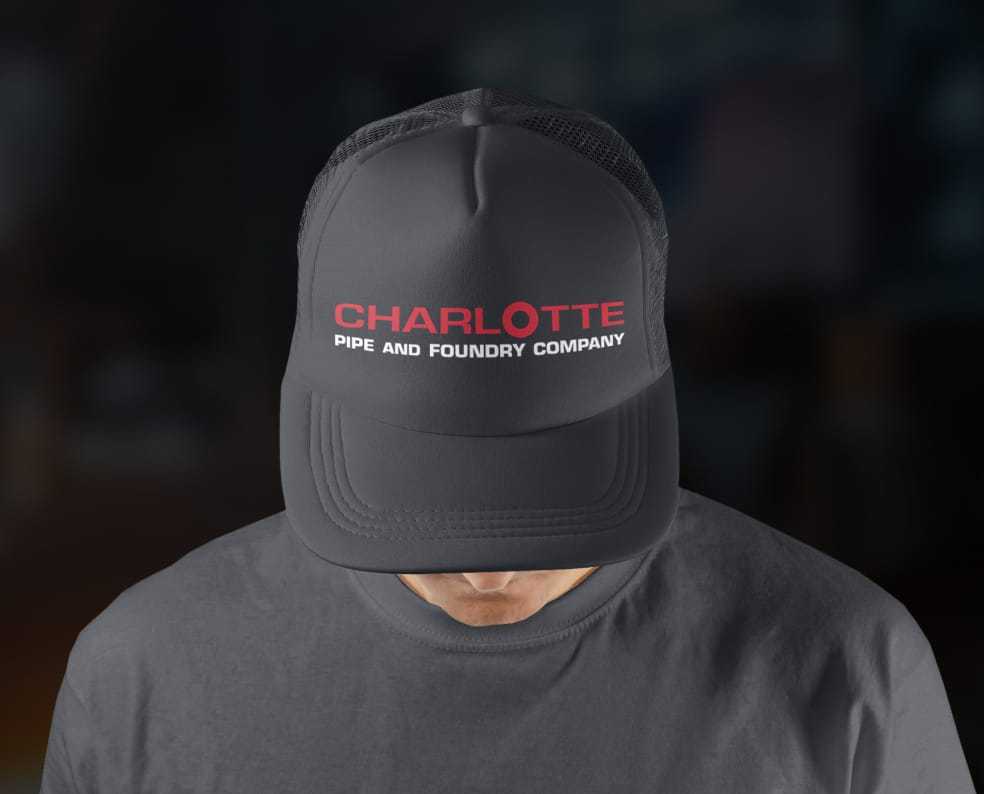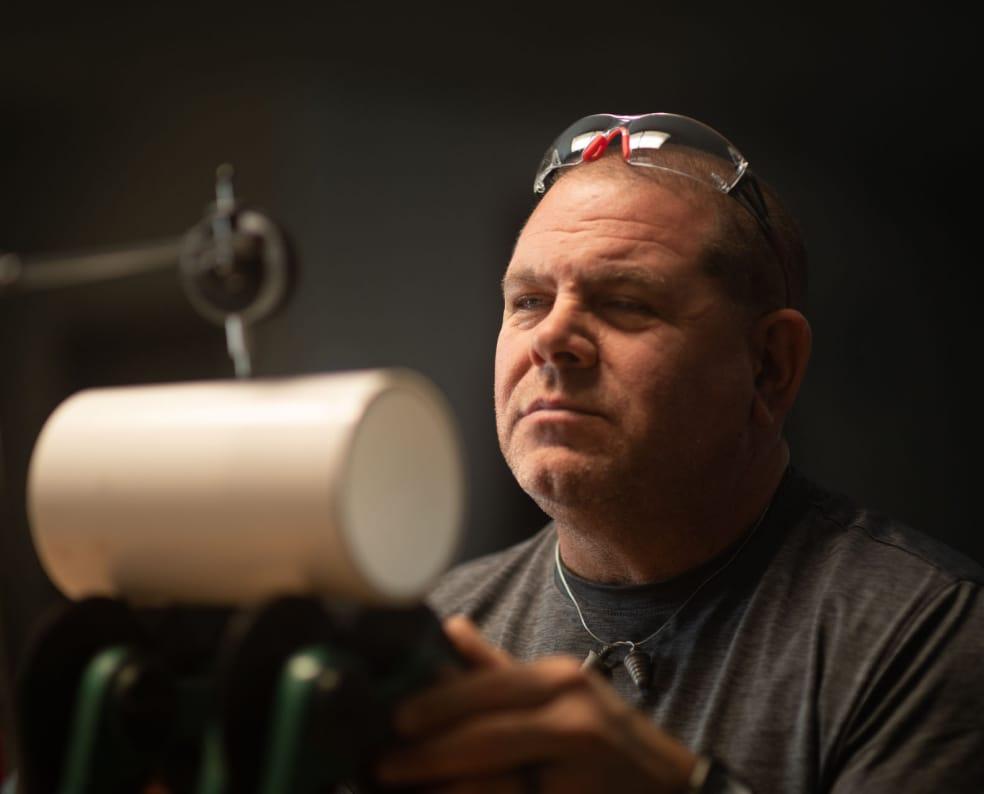Article
Building a Nation: Charlotte Pipe’s American-Made Commitment
Since its founding, Charlotte Pipe and Foundry has embraced and celebrated being an American-built business. The company has made substantial investments in the pipe and fittings manufacturing industry and continues to lead the way forward — making an impact that has helped build America over the span of five generations.
For Charlotte Pipe, being “Made in America” isn’t just a stamp on a product. It’s a passion point that’s defined the company and its culture for more than 120 years.
Bradford Muller, vice president of corporate communications, discusses how this commitment to being 100% made in the USA has impacted Charlotte Pipe’s past, what it means today, and how the company is looking to the future as a leader in American manufacturing.
Describe Charlotte Pipe’s origin story and how the company’s commitment to being 100% made in the USA began.
Muller: In 1901, W. Frank Dowd opened a small foundry on the outskirts of Charlotte to produce cast iron soil pipe and fittings. Over the next five generations, this family-owned business would play a pivotal role in shaping the growth of the city of Charlotte and the plumbing industry in the United States.
Today, we manufacture plumbing pipe and fittings in seven plants across the United States, making products that protect the health of the nation. We directly employ 1,700 associates, along with another 1,000 or so through our wholly owned subsidiary, Neenah Enterprises Inc., and its three foundries in Wisconsin, Florida, and Nebraska.
Our long-term commitment to being American-made extends to our recent $460 million investment in a new foundry in Oakboro, North Carolina. In keeping with our values, all construction materials and supplies for this project were 100% made in the USA.
Our long-term commitment to being American-made extends to our recent $460 million investment in a new foundry in Oakboro, North Carolina. In keeping with our values, all construction materials and supplies for this project were 100% made in the USA. Bradford Muller Vice President of Corporate Communications
Why is it important for customers, engineers, and associates to understand Charlotte Pipe’s American-made commitment?
Muller: Many of our customers take great pride in buying U.S.-made brands and products, not just to support their fellow American workers but also to ensure they’re receiving the highest-quality materials from companies they know and trust.
What’s even more important to our associates and further establishes our dedication to being American-made is our focus on veteran support. We’re a patriotic company, so part of our core values is supporting the military and hiring veterans to join our team. Our veteran associates bring a unique level of leadership and commitment to the table and are, simply put, tremendous associates.
As the manufacturing landscape evolved from generation to generation, how has Charlotte Pipe’s vision and approach to being made in the USA evolved or stayed the same?
Muller: Our commitment to the American worker has been unwavering.
With the rise of globalization over the last few decades, it was important for us to maintain our U.S.-based manufacturing. While other companies were shipping jobs overseas and outsourcing key components, Charlotte Pipe was reinvesting in America.
Beginning in 1981, we built five new plastics facilities across the U.S. and heavily reinvested and expanded those operations in the ensuing years. Rather than outsource the production of our cast iron pipe and fittings, we invested $460 million in Stanly County, North Carolina, and kept more than 530 foundry jobs in our home state. We also recently acquired Neenah Enterprises Inc. and its three legacy foundries in the U.S. as a signal to our associates and the industry that we’re bullish on the U.S. economy and the American worker.
How has being a family-owned, American-made company impacted the local communities where Charlotte Pipe facilities are based?
Muller: Being private means we can take a long view and invest for the future without having to worry about quarterly earnings reports and public shareholders. This allows us to invest substantial capital back into our operations to ensure we run the cleanest and safest plants possible.
It also means we can maintain a no-layoff policy, ensuring job security for our valued associates. We can focus on generously giving back to the communities where we live and work.
Finally, it means our customers know we will be there for them now and in the future.
With its domestic manufacturing practices and principles, how is Charlotte Pipe supporting both domestic and international suppliers and stakeholders?
Muller: Our gratitude toward our customers and associates and pride in being an American company are deeply embedded in our culture. For us, this time-tested commitment to building lasting relationships has been fundamental to our growth and success.
And while it’s a small part of our business, we do have a team dedicated to export sales. We focus on certain geographic areas best suited to our products, including Central and Latin America. We also want to be consistent in our offerings and product availability for our international customers. Too many times, U.S.-based suppliers will send surplus products to foreign markets in good times and pull back from those markets in lean times.
We want to be a consistent, reliable partner for our international customers so they know they can count on us regardless of economic conditions.
Our gratitude toward our customers and associates and our pride in being an American company are deeply embedded in our culture. Bradford Muller Vice President of Corporate Communications
How has Charlotte Pipe’s focus on domestic production influenced product innovations and quality assurance?
Muller: Because we focus largely on the domestic market, we can optimize our offering based on the needs of our customers. We do that primarily through active involvement in the codes and standards setting processes for the plumbing industry, a system that ensures product quality and enables many of the product innovations we’ve seen over the years.
For example, in the mid-2000s, we worked within the codes and standards process to introduce a new drain, waste, and vent product for chemical waste drainage made from chlorinated polyvinyl chloride.
Chemical waste products had never been made from CPVC even though it’s a material perfectly suited for most chemical drainage applications. By working within the codes and standards process, we were able to get the material approved and introduced into the market as ChemDrain®.
What are a few of the economic and environmental benefits that have resulted from Charlotte Pipe being 100% made in the USA?
Muller: Aside from the 2,700 U.S. jobs we support across our 10 Charlotte Pipe and Neenah plants, we’ve always been focused on operating the safest facilities possible and investing in environmental controls.
Our state-of-the-art Oakboro Foundry embodies this commitment to sustainability, with $58 million invested in the plant’s environmental systems, including 30 baghouses, four regenerative thermal oxidizers to collect particulates and emissions, and a 520,000-gallon water treatment plant on-site. We also made the strategic decision to switch from a fossil fuel melt system to electric melt in our new plant, eliminating 40,000 tons of CO2 emissions a year.
The new foundry emits a minimal amount of carbon for a facility of its size — only 4,300 tons annually — which is the equivalent of what nearly 1,000 automobiles emit in a year. Finally, we’re a major recycler. Each year, we melt more than 150,000 tons of scrap iron and steel, making it into useful products.
From Charlotte Pipe’s perspective, what does the future of American manufacturing look like, and how is the company leading the way forward?
Muller: Simply put, Charlotte Pipe is bullish on the future of American manufacturing. We believe our $460 million investment in our new, state-of-the-art foundry operation in Oakboro, North Carolina, embodies this outlook, as well as our commitment to our associates, our communities, and the plumbing industry as a whole.
Our leadership team had the vision to build one of the largest and most advanced foundries in the world, and we’re proud of the dedication and perseverance of those who made it happen. And our gratitude to previous generations of our owners and leaders who have staked our company’s future on making products right here in America goes without saying.
Learn more about Charlotte Pipe’s story — built on American grit.



